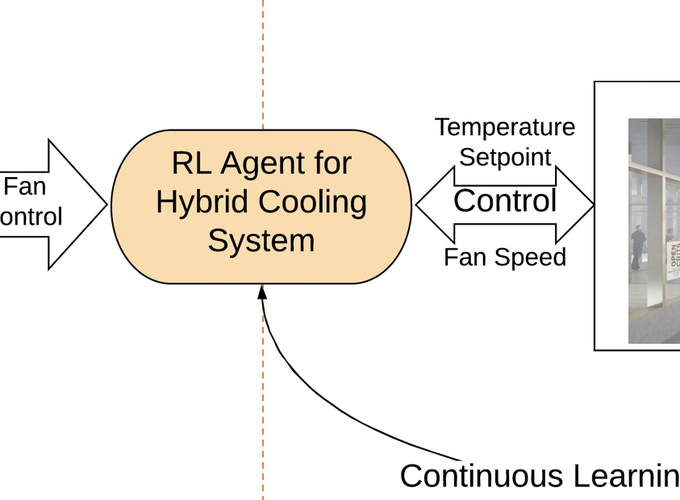An NUS-Kajima project funded by Kajima Singapore.
SDE4 building at NUS is Singapore’s first net zero energy and WELL gold certified building. For the NUS-Kajima collaboration project, we would like to take it to the next level by implementing advanced machine learning based control for the HVAC systems.
Reinforcement learning has been successful in applications as diverse as autonomous helicopter flight, robot legged locomotion, playing video games, marketing strategy selection, etc. It also has the ability to keep perfecting its algorithm during online deployment. With such a powerful tool, we are exploring a practical approach to integrate it into the real world building. By optimal control of the room temperature setpoint and ceiling fan speed at the same time, we can not only achieve a more energy efficient operation, but also maximize the occupants’ thermal comfort.
The objectives of this study are to:
- Develop a multi-objective reinforcement learning control with short-term historical data for the hybrid cooling system in SDE4 building to minimize the energy consumption while maximize the thermal comfort.
- Demonstrate the real-world control performance in an open office or a studio room at SDE4.

